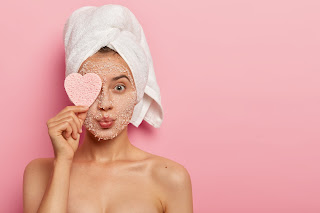Retinol has been a buzzword in the skincare industry for a while now, and with good reason. This powerful ingredient is a form of vitamin A that has been proven to have numerous benefits for the skin. Retinol can help to reduce the appearance of fine lines and wrinkles, improve skin texture and tone, and even fight acne. In this article, we'll take a closer look at the science behind retinol and explore the surprising benefits it can offer for your skin.
What is Retinol and How Does it Work ?
Retinol is a derivative of vitamin A, a nutrient that is essential for maintaining healthy skin. When applied topically, retinol works by speeding up the skin's natural exfoliation process. It also stimulates the production of collagen and elastin, two proteins that are crucial for maintaining skin elasticity and firmness. Additionally, retinol can help to regulate oil production, making it an effective treatment for acne-prone skin.The Benefits of Retinol for Skin
Retinol has a number of benefits for the skin, including:- Reducing the appearance of fine lines and wrinkles: Retinol has been shown to stimulate collagen production, which can help to reduce the appearance of fine lines and wrinkles over time.
- Improving skin texture and tone: Retinol can help to smooth the skin's surface, improve texture and tone, and even out pigmentation.
- Fighting acne: Retinol can help to regulate oil production and unclog pores, making it an effective treatment for acne-prone skin.
- Minimizing pores: Retinol has been shown to help minimize the appearance of pores, making skin look smoother and more even.
- Boosting radiance: By improving skin texture and tone, retinol can help to give skin a more youthful, radiant appearance.
How to Use Retinol Safely and Effectively
Retinol is a potent ingredient, so it's important to use it safely and effectively. Here are some tips to help you get the most out of your retinol skincare routine:- Start slowly: Begin by using a low concentration of retinol and gradually work your way up to higher concentrations. This will help your skin to adjust to the ingredient and minimize the risk of irritation.
- Apply at night: Retinol can make your skin more sensitive to sunlight, so it's best to apply it at night.
- Use a moisturizer: Retinol can be drying, so it's important to use a moisturizer to keep your skin hydrated.
- Wear sunscreen: Since retinol can make your skin more sensitive to sunlight, it's essential to wear sunscreen during the day to protect your skin from UV damage.
Potential Side Effects and Risks of Retinol
Retinol can cause some side effects, especially if used incorrectly or in high concentrations. These can include dryness, flakiness, redness, and irritation. In rare cases, retinol can also cause a condition called retinoid dermatitis, which can cause severe redness, itching, and peeling.Who Should Use Retinol ?
Retinol is generally safe for most people to use, but it's important to keep in mind that it can be irritating for those with sensitive skin. If you have very sensitive skin, you may want to start with a lower concentration of retinol and gradually work your way up.
Retinol is also not recommended for use during pregnancy or breastfeeding, as its effects on the developing fetus or infant are not yet fully understood. Additionally, if you have a history of skin conditions like eczema or rosacea, it's important to talk to your dermatologist before using retinol to ensure it won't exacerbate your symptoms.
Overall, retinol can be a beneficial addition to your skincare routine, but it's important to use it as directed and to be aware of any potential side effects. If you're unsure whether retinol is right for you, talk to a dermatologist or skincare professional for personalized advice.
Conclusion
In conclusion, retinol is a powerful ingredient that has a lot to offer when it comes to improving the health and appearance of your skin. Its ability to stimulate collagen production, reduce fine lines and wrinkles, and even out skin tone make it a must-have for anyone looking to maintain a youthful and radiant complexion. While it may not be suitable for everyone, those who can tolerate it are sure to see the benefits of incorporating retinol into their skincare routine. As with any skincare product, it's important to consult with a dermatologist before starting to use retinol to ensure that it's the right choice for you. So, if you're looking to take your skincare routine to the next level, consider adding retinol to your regimen and enjoy the amazing benefits that it has to offer!


